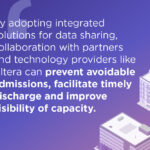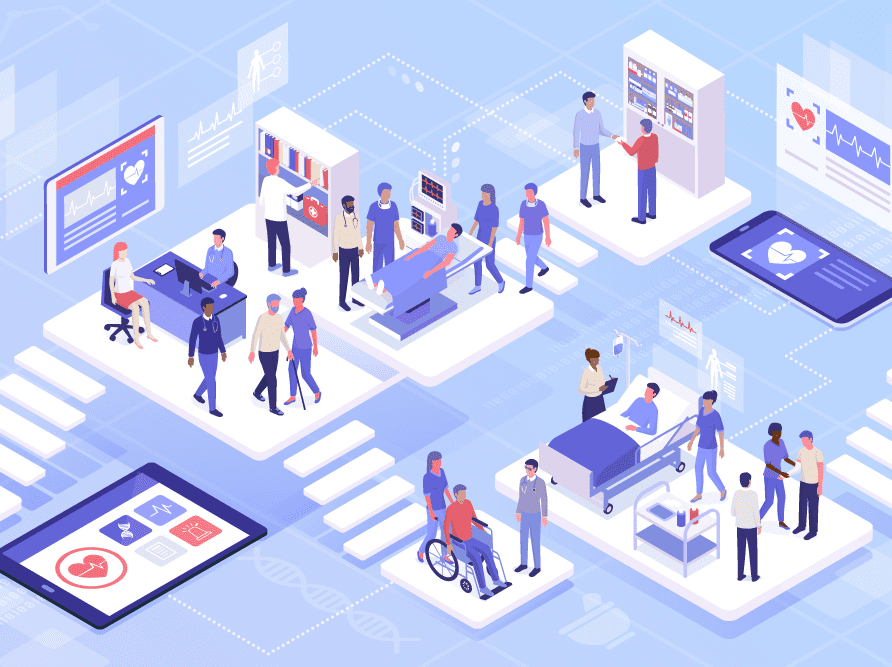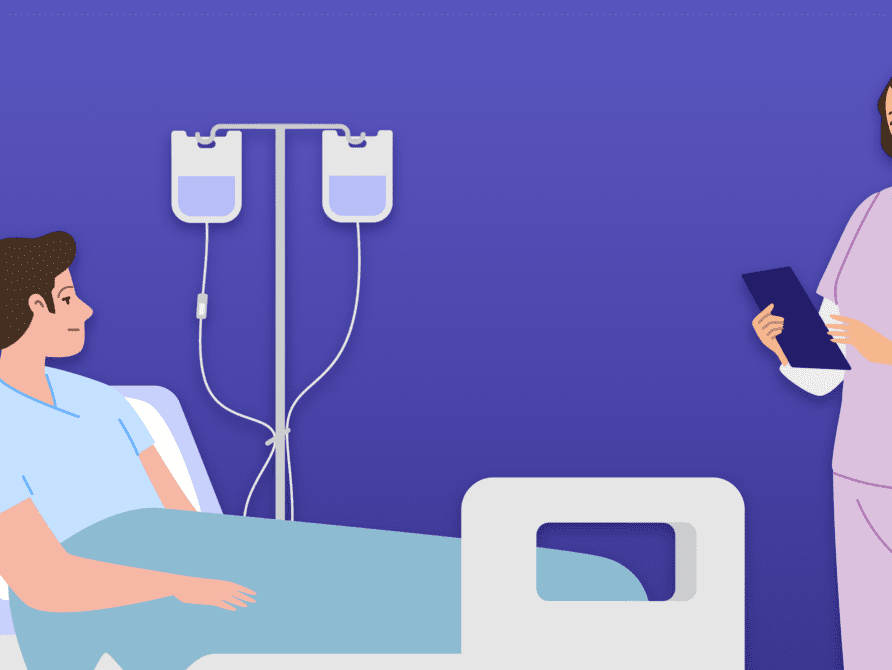Article
Making a difference beyond the hospital walls
Sustainability in healthcare extends beyond environmental concerns—it also encompasses financial viability and long-term effectiveness. As healthcare demands continue to put increasing pressure on already-stretched resources, digital solutions play a key role in improving efficiencies in the delivery of care, and it is crucial to implement solutions that can adapt to evolving needs without compromising patient care.
EPRs have the potential to transform healthcare delivery by streamlining processes, reducing errors and improving decision-making. However, it is imperative to implement EPRs in a sustainable manner that ensures greater success and optimal return on investment.
At the moment, the reality is that, “Patients have been left waiting up to 65 hours for an ambulance in England – while one patient waited in the back of an ambulance for 40 hours outside A&E.”[1]
Lengthy ambulance waits, delays discharging patients, widespread strains on resources, poor visibility of patients ready for discharge and poor visibility of available capacity across the organisation are all common challenges across the NHS. The time for action is now.
There are calls for flexible, interoperable solutions, supporting seamless data sharing and communication within an Integrated Care System (ICS). Better visibility of capacity and patient information can:
- Improve patient flow
- Prevent admission
- Reduce waiting times
- Improve resource allocation
- Facilitate timely discharge
- Drive efficiencies
How can technology improve efficiency?
Recent NHS funding to support the Frontline Digitisation Programme, electronic bed and capacity management systems (eBCMS) and virtual ward initiatives reinforce the digital priorities of NHS England.
EPRs like Sunrise™ enable data to be harnessed to support more proactive monitoring and collaboration between care teams, improving visibility of patient status and capacity. Patient flow solutions improve visibility of wards and capacity with real-time updates, supported by solutions for housekeeping and portering—increasing overall efficiency and resource utilisation. Virtual wards support remote monitoring and management of patients feeding data into the Sunrise EPR, enabling patients to remain in their own homes or secure early discharge.
The future
Creating a more sustainable NHS requires innovative approaches to EPR implementations that prioritise:
Cost-effectiveness – Our advice is to only replace what you need. We have proven that you can produce the most value by implementing the clinical modules in your strategy as steadily and efficiently as needed.
Speed to value – Our Sunrise blueprint provides a launchpad for trusts to accelerate their configuration journeys.
Usability – Our developers work with the user in mind and that approach drives the development of our solutions.
Fast deployment – We have proven that an EPR can be implemented efficiently in months, not years, without any compromise on quality, safety or usability.
Our clients have seen the benefits of this approach: “How do you generate the greatest clinical benefit from the least time and money? A PAS replacement would have been a lot of work and a lot of risk, with no clinical benefits … Sunrise gave us obvious clinical benefits … [It is] a beautifully simple, ready-made system. It’s everything you need, and nothing you don’t,” said Dr Martin Farrier, CCIO, Wrightington, Wigan and Leigh NHS Foundation Trust
The vital role of interoperability and data integration
We know many ICS providers are operating in silos using a range of data logging processes and storage, from SQL servers to spreadsheets and notepads. Significant time is often wasted on the telephone confirming the status of patients with no joined-up approach in place for transferring people between organisations. Lack of data visibility for all relevant clinical and operational stakeholders can also lead to delays in patient discharges and contribute to additional clinical interventions triggered as a result of acquiring healthcare-associated infections or suffering falls as a result of lengthy inpatient stays.
One Gloucestershire ICS including Gloucestershire Hospitals NHS Foundation Trust (GHFT) implemented a system-wide patient flow dashboard underpinned by Sunrise EPR. This led to faster coordination of patient discharges across the care providers within the ICS. They had ICS-wide oversight of patients awaiting discharge from GHFT and the next stages of their pathways with a real-time feed. This enabled them to identify where potential bottlenecks were occurring and enabled the trust to have the right resources in place to help people transition safely and efficiently from hospital to being cared for at home, or in a community setting.
How technology can improve patient flow and drive efficiency
Embracing holistic approaches to patient care and resource management with solutions like Sunrise EPR and Altera Patient Flow™ contributes to a more resilient and future-proof healthcare system. Healthcare organisations can take actionable steps to truly make a difference beyond hospital walls. By adopting integrated solutions for data sharing, collaboration with partners and technology providers like Altera can prevent avoidable admissions, facilitate timely discharge and improve visibility of capacity.
The future: Our top tips
- ICS Engagement – Collaboration and robust governance across the ICS lay the foundation for success.
- Don’t wait for perfect – Levels of digital maturity across the ICS are variable. Therefore, data quality and availability are inconsistent across providers, so use what you have.
- See the potential – There is significant opportunity for long-term outcomes to inform other programmes of work, both from a digital and operational perspective
- Harness the power of the data – Trend analysis over time is key in demonstrating impact on length of stay and improved patient experience of discharge, supporting data-driven planning.
- Don’t over complicate – A simple approach leads to quicker implementation and makes an immediate difference. Start simple and evolve over time.
To learn more about how Altera is supporting the NHS, please click here.
[1] https://news.sky.com/story/patients-waited-up-to-two-and-a-half-days-for-ambulances-and-40-hours-to-get-into-a-e-12859720














